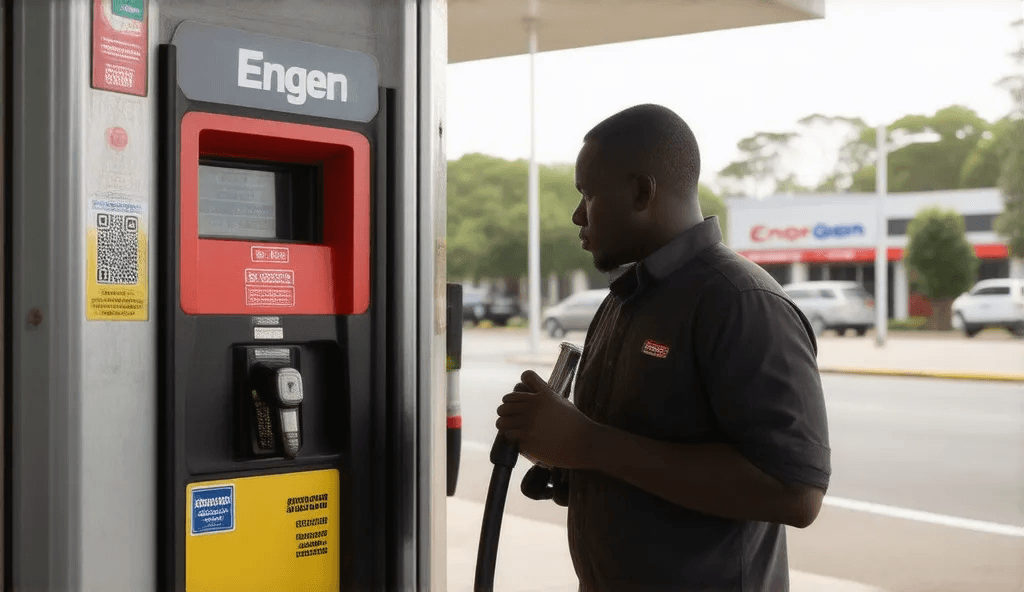
November 2024 Fuel Price - Bad News for Motorists
South African motorists should prepare for a petrol price increase next week, with no signs of improvement in the latest fuel recovery data from October’s third week.
Based on the Central Energy Fund's (CEF) latest figures, fuel price projections for November indicate continued strain, with potential increases for both petrol and diesel at approximately 20 cents per litre.
Petrol prices are reflecting a wider gap, with under-recoveries between 18 and 30 cents per litre, while diesel is expected to see under-recoveries between 22 and 23 cents per litre.
This projection shows a decline from the mid-month outlook, reversing an earlier forecasted price cut at the beginning of the month of October.
The projected fuel price adjustments are:
- Petrol 93: likely to rise by 18 cents per litre
- Petrol 95: projected increase of 30 cents per litre
- Diesel 0.05% (wholesale): expected rise of 23 cents per litre
- Diesel 0.005% (wholesale): anticipated increase of 22 cents per litre
- Illuminating paraffin: increase forecasted at 20 cents per litre
The reasons behind the fuel increase
According to Jo Stone, CEO of Sandton Debt Counselling, the primary factor behind this under-recovery trend in October has been the rising global oil price, which remains elevated compared to September.
Although Brent crude prices have recently fallen to around $73 a barrel from mid-month highs, they are still averaging higher than September levels.
The rand/dollar exchange rate is somewhat mitigating the impact on fuel prices, although the local currency has weakened to above R17.60 in recent weeks. This drop has tempered what began as a stronger month, with the rand previously nearing R17.00 to the dollar, Stone said.
Market uncertainty, heightened by the lead-up to the United States presidential election in November, has also placed additional pressure on the rand.
According to Investec’s chief economist Annabel Bishop, the tight polling situation—often showing either Donald Trump or Kamala Harris in the lead—has amplified market apprehension.
Citadel Global’s Bianca Botes notes that even as the new week begins, the rand remains vulnerable, pressured by a strong dollar, concerns around China’s economic policies, and local political issues.
While the rand is still somewhat firmer than it was in September, the fuel price hike for November remains likely, with the exact increase yet to be finalized, although signs point to a steeper adjustment.
Factors Influencing Oil Prices
Two key factors are currently influencing global oil prices: heightened tensions in the Middle East and China’s economic performance.
Israel has not immediately responded to an October 1 attack by Iran, and Iran's oil industry continues operating as usual, according to state media reports. Israel, however, conducted airstrikes on military targets across Iran last Saturday, keeping its response contained to non-oil facilities, following a request from U.S. President Joe Biden’s administration. As a result, oil prices eased more than 5% at the start of the week, with analysts speculating that the conflict could stabilize.
Iran has yet to indicate any plans for retaliation, and its oil production remains unaffected. Economists also highlight China’s challenging economic outlook as another significant factor. Although this may help reduce oil prices in the future, these conditions may not reflect on the fuel pricing outlook for November.

What about those already struggling to pay debts?
The anticipated fuel price increase in November poses a significant challenge for South Africans as a whole, especially to those already behind on instalments, this with higher electricity prices and food prices not coming down is devastating, even more so to those undergoing the debt review procedure.
People under debt review rely on restructured payment plans to pay their outstanding debt, they operate on very tight budgets with little room for unexpected expenses.
A fuel price hike directly affects transportation costs, but it also has a ripple effect, making everyday necessities like groceries more expensive. For those already struggling, this strains their budgets further, as the increased cost of goods can make it hard to cover essentials while still meeting their debt obligations.
Additionally, public transportation fares will rise in response to fuel costs, and as we all know, once it goes up, it probably won’t come down, adding another layer of difficulty for consumers who rely on buses or taxis to get to work. For people in debt review, these price hikes can create pressure on repayment plans, as they may be forced to reallocate funds to cover the higher costs of transportation and daily needs.
Debt counsellors often advise clients to put aside a small amount every month, when possible, or adjust budgets and prioritize essential expenses when prices rise. However, the continuous increases are stretching many consumers’ finances- not only the ones under debt review, to the breaking point, making it more challenging to stay consistent with repayments and remain on track to regain financial stability.
Can a debt counsellor help me if I am already struggling
A debt counsellor will be able to assess your financial situation and advise on the best steps to take. Not everyone qualifies for the services of a debt counsellor. That said, at Sandton Debt Counselling we will really do whatever we can to assist you, even if we see that you will not be our client, we will still help where we can. Contact us by calling / WhatsApp us on 087 550 11 22 or completing our call me back form.
